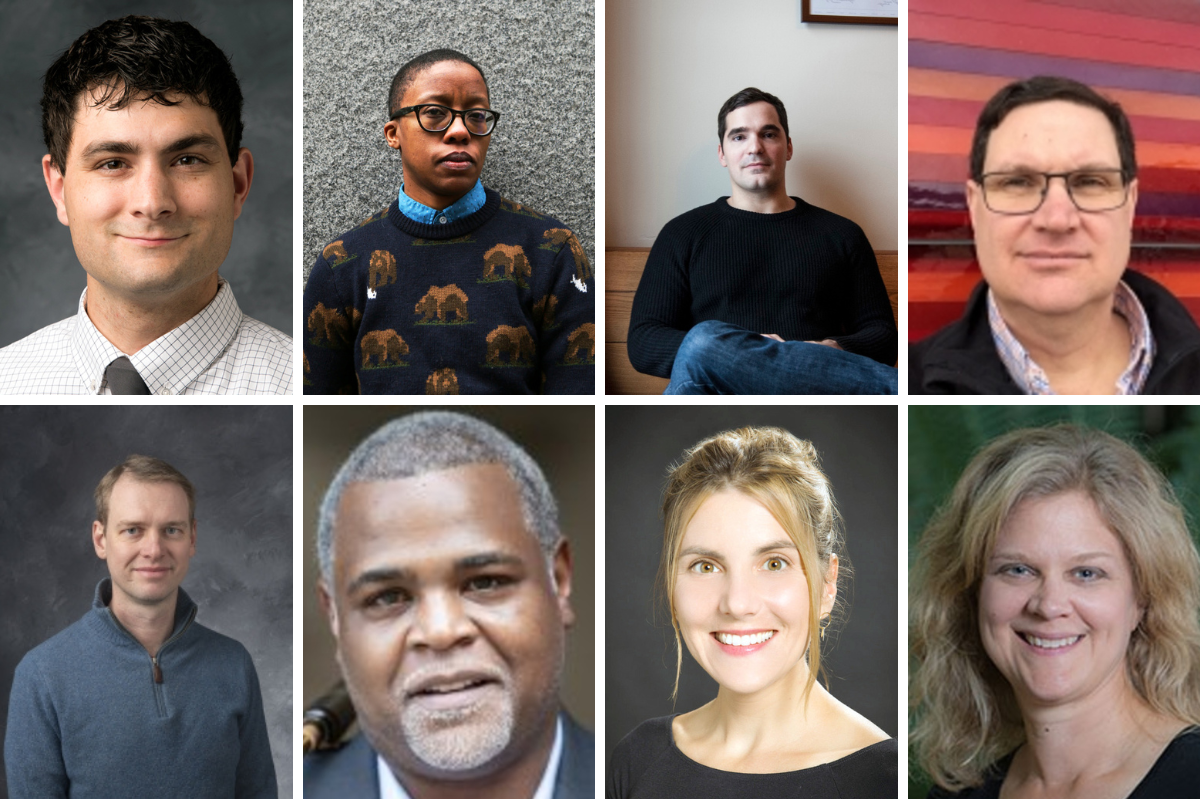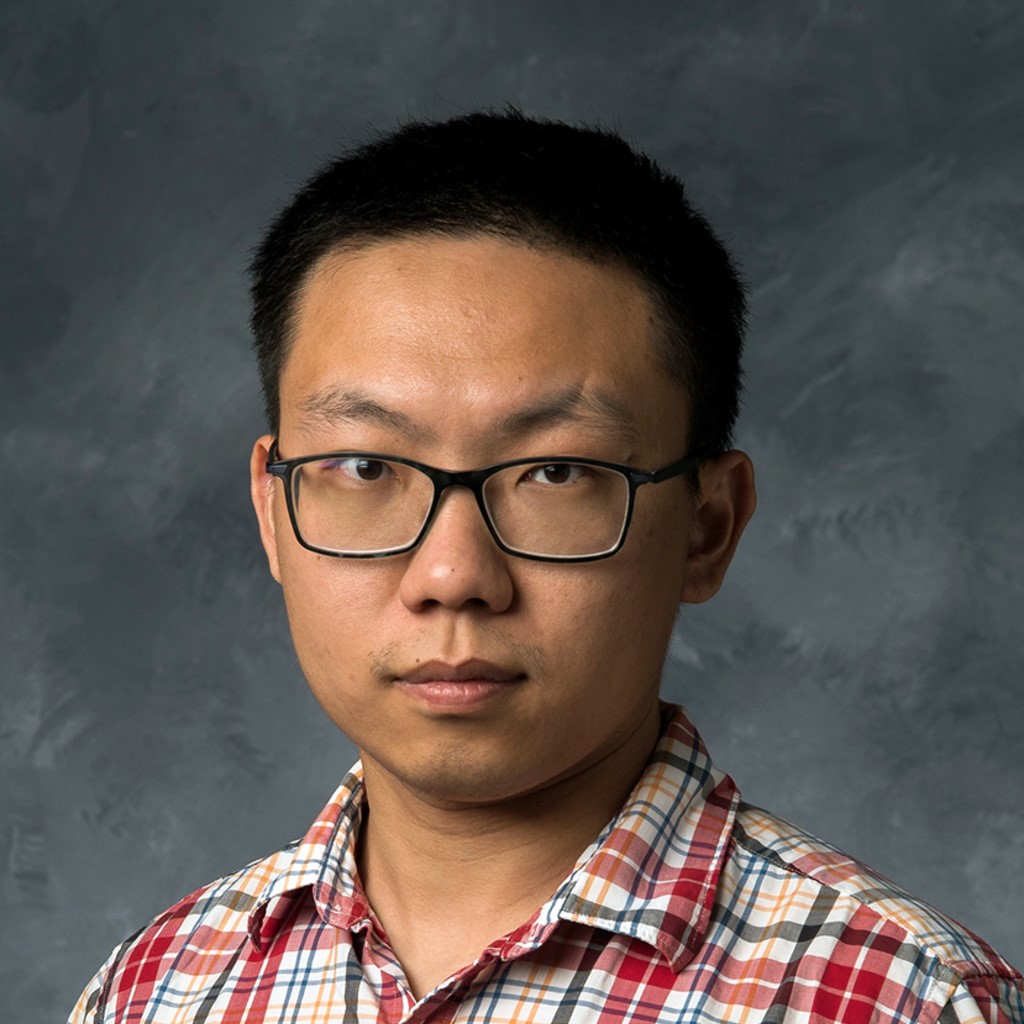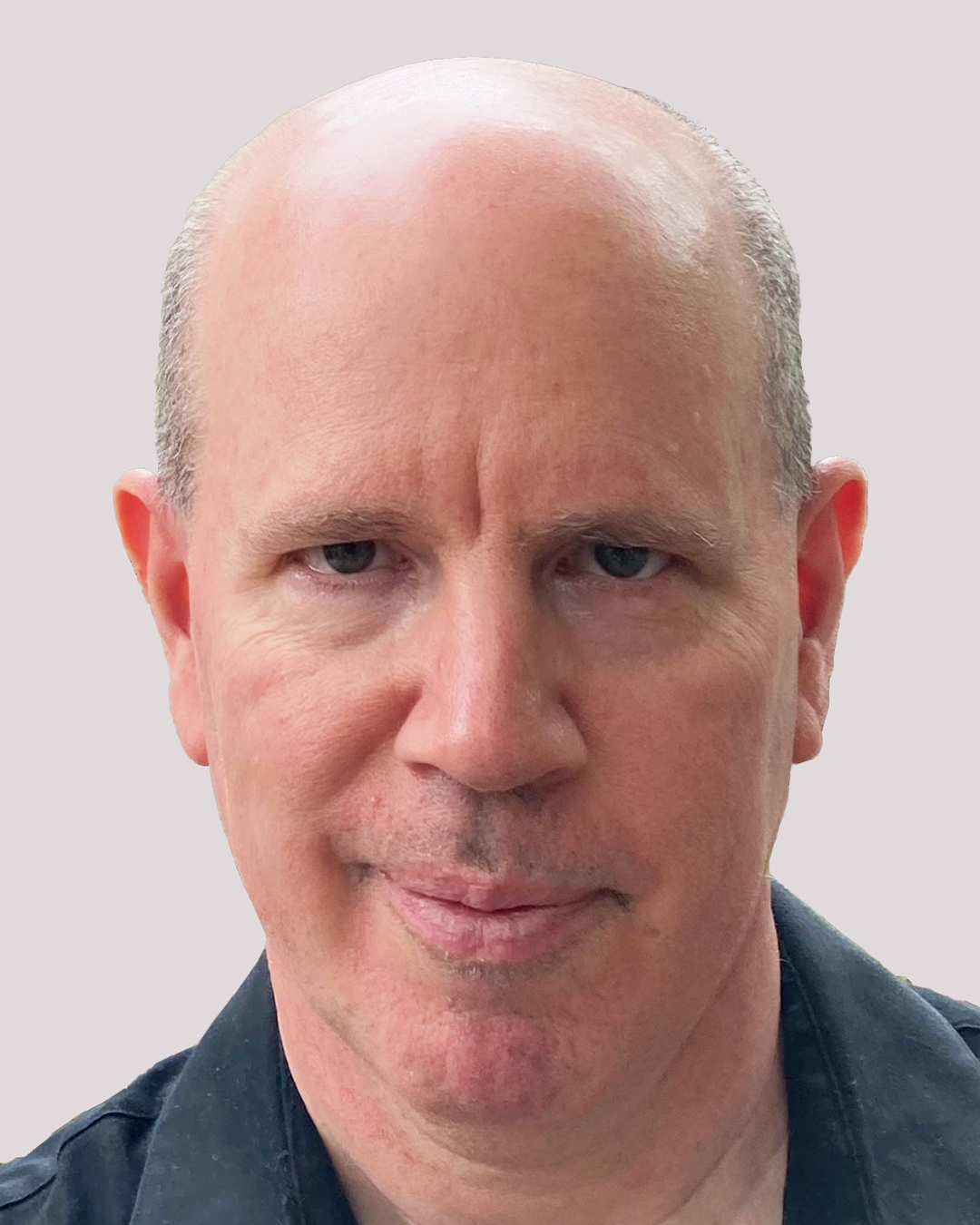-
Meet 15 CLAS graduate students awarded prestigious fellowships to support their research and creative work
April 22, 2024
By Charlotte Brookins
A total of 15 graduate students have been named prestigious fellows by the College of Liberal Arts and Sciences, with five receiving 2024-25 Marcus Bach Fellowships and ten receiving 2024 CLAS Dissertation Writing Fellowships.
Congratulations to these deserving students!
Marcus Bach Fellowship
The Marcus Bach Fellowship, named for the 1942 University of Iowa graduate of the same name, is awarded to graduate students in the humanities to support the completion of an MFA project or doctoral dissertation. The fellowship’s goal is to foster intercultural communication and the understanding of diverse philosophies and religious perspectives.
Each fellow receives a semester of support including a $10,700 salary, a tuition scholarship for 2 semester hours credit, and more.
The five recipients for the 2024-25 school year are:
-
Caelainn Barr, Department of English (Nonfiction Writing Program), "Written in the Land"
Barr’s project is a memoir grounded in archival research and interviews that explores the intersection of religion, spirituality in nature and family history. The work is set against the backdrop of conflict in in Northern Ireland. -
Nathan Chaplin, Department of History, "Surveying the Tropics, Constructing the Heartland: Identify Formation in Nicaragua and the Midwest"
Chaplin’s project investigates the alliances formed between Nicaraguan and Midwestern elites as they attempted to manage public health crises, state policy, and capital investment during the 19th and 20th centuries. -
Spencer Jones, Department of English (Nonfiction Writing Program), “All Skillful in the Wars”
Jones’s thesis explores political and theological tensions in the lives of radical-revolutionary schoolteachers Harriet Wheeldon and Simone Weil. -
Xiaoyan Kang, Department of Theatre Arts, “The Words of Ants"
Kang’s thesis takes the form of a play drawing inspiration from the 1983 script Nüshu, or the script of women. Through it, the playwright intends to explore how individual experiences are interpreted to serve a particular narrative. -
Mariana Mazer, Department of Spanish and Portuguese, “The book as an object and container of multiple stories"
Mazer’s dissertation explores the relationship between the book as a physical object and the narratives it contains, ultimately printing and binding eight copies of the finished thesis.
CLAS Dissertation Writing Fellowship
The CLAS Dissertation Writing Fellowship is awarded annually to 10 graduate students, providing time and funding for the completion of a PhD dissertation. The fellowship provides a total of $14,000 to each student.
-
Brittany Anderson, Department of Anthropology, “Attunements of Care: The Role of Housekeeping and Laundry Staff in Midwest Continuing Care Retirement Communities”
Anderson’s dissertation explores the roles of housekeeping and laundry staff in continuing care retirement communities play in the complexity of providing care for residents. -
Isabel Baldrich, School of Art and Art History, “Caribbean Stain: Erasure and Creoleness in Parisian Art”
Baldrich’s dissertation intends to emphasize the importance of French Caribbean heritage in 18th and 19th century French art. -
Francisca Diaz, Department of Psychological and Brain Sciences, “The Role of Numerical and Nonnumerical Magnitudes in Discriminative Behavior: A Comparative Study”
In her dissertation, Diaz seeks to compare the roles of numerical and nonnumerical properties in effective information analysis. -
Dominic Dongilli, Department of American Studies, “Interspecies America: Animal Lives and Reproductive Politics at the Smithsonian National Zoo”
Dongilli’s thesis examines encounters between human and nonhuman animals at the Smithsonian National Zoo, arguing that zoos mediate U.S. identities, cultures, and environmental futures in which humans and nonhuman bodies interact.
-
Adriana Fernández I Quero, Department of Mathematics, “Rigidity results for group von Neumann algebras with diffuse center”
Fernández I Quero’s dissertation explores von Neumann algebras, a kind of mathematical framework initially created for studying particle physics, and its relationship with diverse subjects such as continuous model theory. -
Katharine Gilbert, Department of French and Italian, “Navigating Language Hierarchies in the Indian Ocean and the Caribbean: Women, Memory, Communities”
Gilbert’s research focuses on the use of language by Francophone writers from former French colonies in the Indian Ocean and the Caribbean. -
Sun Joo Lee, School of Music, “Therapeutic Singing and Semi-Occluded Vocal Tract Exercises for Individuals with Parkinson’s Disease”
Lee’s thesis examines the benefits of semi-occluded vocal track exercises and therapeutic group singing as a treatment for Parkinson’s Disease. -
Mengmeng Liu, Department of Communication Studies, “Navigating subversiveness: Digital Feminist Play and Resistant in Women-Centered Media Practices in China”
Liu’s dissertation intends to examine contemporary gender politics, feminist discourses, and digital dynamics in China. -
Briante S. L. Najev, Department of Biology, “How do environmental stressors influence a snail with variable ploidy and reproductive modes?”
Najev’s dissertation investigates how nutritional limitation and population density influence the chromosomal makeup of the destructive, globally invasive New Zealand mud snail. -
Caleb Pennington, Department of History, “Shades of Green: Historical Perceptions of the U.S. Environmental Movement”
Pennington’s research analyzes how early opponents of the U.S. environmental movement fostered negative stereotypes of environmentalists in order to dictate the public perception of conservation.
[field_pillars] -
-
Six CLAS staff members honored with 2024 Staff Excellence Awards
April 18, 2024
[field_pillars] -
Four CLAS faculty receive 2024 Hubbard-Walder Award for Excellence in Teaching
April 17, 2024
[field_pillars] -
CLAS computer science assistant professor receives prestigious NSF CAREER award
April 12, 2024
By Charlotte Brookins
Peng Jiang, assistant professor in the Department of Computer Science, has been awarded a CAREER award by the National Science Foundation.
The award, which supports faculty with the potential to serve as mentors and leaders in their fields, includes a grant of $548,944. The funds will support Jiang’s current research project, entitled “Compiler and Runtime Support for Sampled Sparse Computations on Heterogeneous Systems.”
Jiang says the goal of this project is to simplify the implementation process of sample-based algorithms, improve the performance of big data applications, and enhance the capacity to solve large-scale real-world problems. He also hopes to use the success of the project to provide more research opportunities for undergraduate students, especially those from underrepresented groups.
“Sampling-based algorithms are gaining popularity in data applications because they help reduce computation costs,” says Jiang, introducing his research project. “However, their efficiency on hardware is limited due to random memory access and computation patterns. This research aims to address this issue by developing compiler and runtime tools.”
Jiang, who joined the College of Liberal Arts and Sciences in 2019, says his project is unique from others because it includes a high-level programming interface that allows users to specify data management and preprocessing for different types of sampled computation. It also features techniques that exploit both hardware and randomized algorithm features to improve overall performance.
Jiang cites his past research experience as the inspiration for the project.
“I’ve been working on compiler and runtime systems over the past 10 years,” Jiang explains. “This project aims to build on that work to develop the next generation of system software for sampling-based algorithms on heterogeneous hardware.”
Expressing his gratitude for the support he has received throughout this process, Jiang reflects on the valuable research environment provided for him and other faculty members at the University of Iowa.
“The university’s computer science department provides a collegial and collaborative environment where I can discuss my research ideas with colleagues,” says Jiang. “I have received valuable feedback from other faculty members on my research projects and grant proposals.”
Jiang says he is especially appreciative of the support he has received from fellow computer science professor Octav Chipara, whose research specializes in wireless networking, embedded systems, and more.
“I also appreciate the CLAS Grant Support Office for their assistance with proposal preparation,” Jiang adds. “I am so excited that my work is being recognized and that the research community shares my vision for future trajectories.”
[field_pillars] -
CLAS announces 2024 faculty promotion and tenure awards
April 12, 2024
The College of Liberal Arts and Sciences has announced eight faculty members will receive the college’s esteemed Dean’s Scholar, Collegiate Scholar, Distinguished Associate Professor of Instruction, and Distinguished Professor of Instruction awards.

CLAS Dean’s Scholar Award
The Dean's Scholar Award recognizes faculty candidates for promotion who excel in both teaching and scholarship or creative work. The two-year award carries a one-time financial award. The following faculty were selected among those promoted to associate professor with tenure:
Casey DeRoo, Department of Physics and Astronomy
DeRoo’s research areas include astronomy, astrophysics, and space physics. He is interested in researching high energy astrophysics and astronomical instrumentation. DeRoo also prioritizes professional development opportunities for graduate students.Donika Kelly, Department of English
Kelly is an award-winning poet whose work has been published in The New Yorker, The Atlantic, The Paris Review, and more. Kelly’s research interests include contemporary American poetry, African American poetry and poetics, and ecopoetics.Bennett Sims, Department of English
Sims is an accomplished author and graduate of the Iowa Writers’ Workshop. His novel, “A Questionable Shape,” received the Bard Fiction Prize and was a finalist for The Believer Book Award.
CLAS Collegiate Scholar Award
The Collegiate Scholar Award was inaugurated in 2008 to recognize mid-career faculty for exceptional achievement. The award carries a financial award to support the recipient's teaching and research initiatives. The following faculty were selected among those promoted to full professor:
Matt Hill, Department of Anthropology
Hill’s work focuses on landscape-scale processes of human-environment interactions expressed in long-term behavioral changes across various environmental settings. He is currently involved in three different research projects and is leading an archaeological field school for students this summer.Ryan Kinser, Department of Mathematics
Kinser’s research areas include algebra, as well as representation and number theory. Kinser, who is also DEO of the department, is interested in researching representation theory of algebras, geometric methods in representation theory, and more.Damani Phillips, School of Music
Phillips, who serves as head of jazz studies, is an accomplished performer, scholar, teacher, and composer. He has taught and performed throughout the United States, Europe, Asia, and South America.
CLAS Distinguished Associate Professor of Instruction
The Distinguished Associate Professor of Instruction Award recognizes candidates who excel in teaching, institutional and professional service, and their record of publications at the time of advancement. The two-year award carries a one-time financial award.
Kirsten Kumpf Baele, Department of German, was selected among those promoted to associate professor of instruction.
Kumpf Baele is committed to combining learning goals and community service projects in ways that enrich student growth and the common good. She continuously pushes her students and herself as educator. Kumpf Baele is also the director of the Anne Frank Initiative.
CLAS Distinguished Professor of Instruction
The Distinguished Professor of Instruction Award recognizes candidates who excel in teaching, institutional and professional service, and their record of publications at time of advancement. The two-year award carries a one-time financial award, which may be used for research and teaching initiatives.
Lori Adams, Department of Biology, was selected among those promoted to professor of instruction.
Adams is interested in enhancing undergraduate biology education through research experience opportunities, mentoring, and the practice of scientific teaching. Adams teaches courses in communicating research, student development, and more.[field_pillars] -
CLAS faculty members receive 2024 Discovery and Innovation Awards
April 12, 2024
[field_pillars] -
Three CLAS faculty involved in search committee for next vice president for research
April 12, 2024
[field_pillars] -
CLAS associate professor receives prestigious rhetoric award
April 10, 2024
By Emily Delgado
E Cram, associate professor in the Department of Gender, Women, and Sexuality Studies and the Department of Communication Studies, received the prestigious Karl Wallace Memorial Award from the National Communications Association.
The Karl Wallace Memorial Award is given to scholars who have contributed to the study of rhetoric and public discourse. The award includes a grant for the recipient to continue their research project.
"This recognition of my research and career thus far, I hope, will provide a model to others in the field who work to center marginalized histories and their ecological niches,” Cram said.
The award funds will allow Cram to continue their research on the Johnson County Historic Poor Farm. The Johnson County Historic Poor Farm was once used to care for and house individuals with disabilities and the poor. Now, the site is revitalized through GROW: Johnson County and the Global Food Project, and open to the public as a learning space for the people of Johnson County and Iowa.
Cram’s research project is split into two stages. The first is their podcast, “Disability Ecologies of Care and Memory at the Johnson County Historic Poor Farm,” and the second is compiling research and embarking on a book project. Cram’s research focuses on the intersectionality of disability history, preservation, and food systems communication.
The podcast has allowed Cram to share their research on the Johnson County Historic Poor Farm restoration. Cram has spent the last two years in this community talking to members of the Johnson County Board of Supervisors, food systems workers, and disability advocates.
Cram’s interviews highlight how the former poor farm was designated for historic preservation, how its restoration was planned and designed, how disability advocates influenced the planning process, and how the site memorializes the people who lived there. At the same time, Cram has been compiling the work into a story board for their book.
Cram hopes the research and experience of making a podcast will better their teaching at Iowa.
“My hope is that in the future my teaching will benefit from the experience of making a podcast. I have encountered a different way to tell stories of place-based histories and how they shape contemporary communities’ concerns,” Cram said.
Cram is grateful for the support from their departments, college, and colleagues at the University of Iowa.
“My hope is that national recognition of work like this underscores the excitement for truly interdisciplinary environmental humanities research,” Cram said.
[field_pillars] -
CLAS art history professor named fellow in medieval studies academy
April 12, 2024
By Charlotte Brookins
Robert Bork, professor and director of graduate studies in the School of Art and Art History, is one of only seven fellows named to the Medieval Academy of America’s 2024 Fellowship Class.
The Medieval Academy of America (MAA) was first established in 1925 and works to propagate a scholarly community with the goal of deepening and disseminating knowledge of medieval history in a way that is equitable, accessible, and inclusive. The fellowship class is nominated on an annual basis, with up to 150 fellows at one time.
“I feel deeply honored to join this group, which includes only a few art historians,” says Bork.
As described on its website, the purpose of the MAA’s fellowship program is to honor long-term academic achievements in the field of medieval studies. Fellows work as a group to use their raised profile as medievalists to ensure the continued vitality of their field.
Bork, who has been with the University of Iowa College of Liberal Arts and Sciences for just over 25 years, says his time at the university has contributed to his development as a scholar and professor in many ways.
“Most concretely, the university has supported my work with internal grants such as the Faculty Scholar program, the Arts and Humanities Initiative, and grants for conference and research travel,” Bork explains, referring to the AHI-funded trip in which Bork and a small group of students and staff traveled to France. On this trip, the group used laser scanners to create precise 3D models of Gothic cathedrals important to Bork’s current research.
“The university has also supported my applications for external grants such as those from the Humboldt Foundation, the National Gallery of Art, and the American Council of Learned Societies, which have been crucial to my book projects,” he adds.
Bork has appeared in numerous publications detailing his research in medieval studies.
Bork majored in physics before embarking on his career in architectural history, and he notes that much of his research utilizes his multifaceted background, something that is supported by the university and college’s strength in a variety of programs.
“I would urge students to take advantage of this breadth by taking a wide range of classes during their years here,” says Bork. “At the same time, I encourage students to share their diverse interests with their faculty mentors, since undergraduate research can open up valuable and unexpected opportunities, as I have seen in my own career.”
Bork will be formally inducted as an MAA Fellow during the organization’s annual meeting in March.
[field_pillars] -
US News & World Report ranks Iowa audiology, speech-language pathology among the top in the nation
April 09, 2024
[field_pillars]
News Briefs
The University of Iowa College of Liberal Arts and Sciences offers about 70 majors across the humanities; fine, performing and literary arts; natural and mathematical sciences; social and behavioral sciences; and communication disciplines. About 15,000 undergraduate and nearly 2,000 graduate students study each year in the college’s 37 departments, led by faculty at the forefront of teaching and research in their disciplines. The college teaches all Iowa undergraduates through the college's general education program, CLAS CORE. About 80 percent of all Iowa undergraduates begin their academic journey in CLAS. The college confers about 60 percent of the university's bachelor's degrees each academic year.

.jpg)
